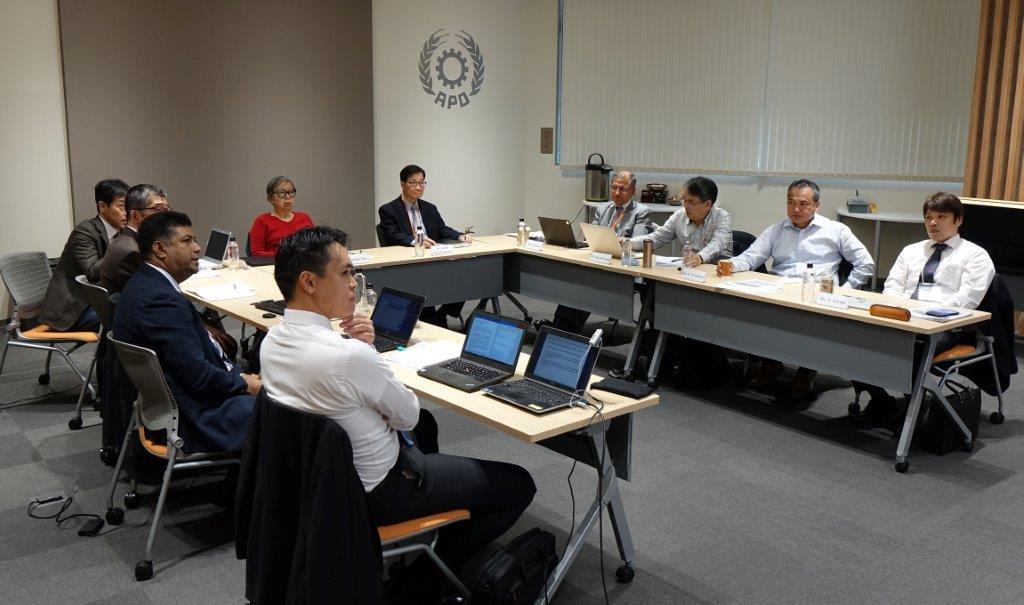
Select Page
The Asian Productivity Organization (APO) announced that it is developing an Agricultural Transformation Framework (ATF) for its member countries. The initiative is part of the organization’s transformation agenda to help members overcome the challenges posed by the fast-changing socioeconomic-political environment and enhance sustainable productivity in agriculture to meet future food requirements.
Digital technologies and the disruptions caused by them are helping the manufacturing, service, and public sectors drastically change the way business is done, from the artificial intelligence-enabled ability to customize mass manufacturing production lines to near-human chatbots that can respond by contextualizing individual customer needs. It is also changing the basic nature of governance and the citizen service-delivery mechanism.
Core agriculture, however, has been slower to respond to the multiple opportunities and challenges unleashed by digital disruptions. The ATF is part of the APO’s Agricultural Transformation Initiative to develop technology-led smart agriculture in member countries to help meet growing food requirements due to expanding populations in the face of reduced availability of arable land, shrinking water availability for agriculture, aged farming community and shortage of labor, and impact of climate change on agriculture.

The APO recently organized an expert meeting led by International Food Policy Research Institute (IFPRI) Deputy Division Director and Senior Research Fellow Dr. Xinshen Diao. The expert meeting for developing the ATF was held at the Secretariat in Tokyo, 29 October to 1 November 2018. The committee reviewed key concepts in agricultural transformation and identified successful case studies from member countries and developed countries outside the region to select models and best practices that can be adopted in the Asia-Pacific.
The team of experts also identified critical needs for capacity development in member countries for embracing digital technologies to streamline farming and postharvest handling processes, which will bring about the changes necessary for higher sustainable productivity in agriculture and enhanced performance of food value chains. The draft ATF will include the steps for adoption of modern technologies, list of adoptable technologies, and preconditions, including the level of readiness to adopt transformation initiatives.
“The looming food security challenge can be dealt effectively by altering the way agriculture is managed in the region. Transforming the agriculture sector for higher productivity and improving food safety will also help create jobs, raise incomes, and kick-start the economy,” said APO Secretary-General Dr. Santhi Kanoktanaporn when explaining the need for the ATF initiative.
The APO Agricultural Transformation Program is aimed at meeting the future food needs of the Asia-Pacific region. Around 60% of the world’s population resides in the Asia-Pacific. At the current rate of growth, it is predicted that the global population will touch nine billion by 2050. This means that the world will need to produce around 70% more food by 2050 to keep up with growing demand. The situation may become more critical in developing countries as their fast-growing middle-class populations with higher purchasing power will have more to spend on food. This will require the majority of APO member countries to nearly double their agricultural production.
Despite many being agricultural economies, the share of agriculture in the GDP of APO members has been steadily declining. Although agriculture continues to be at the core of rural poverty reduction, national food security, and improved nutrition, both public- and private-sector investment in agriculture remains very low.
The team of experts included: University of Tsukuba Faculty of Life and Environmental Sciences Professor and Chair of the Doctoral Program of Appropriate Technology and Science for Sustainable Development Dr. Shusuke Matsushita; Philippine Institute for Development Studies Senior Research Fellow Dr. Roehlano M. Briones; National Taiwan University Department of Bio-Industrial Mechatronics Engineering Distinguished Professor Dr. Joe-Air Jiang; APO Secretariat Agriculture Department Director Dr. Muhammad Saeed and Program Officer Dr. Sheikh Tanveer Hossain; Seraku Ltd. Product Manager Yoshimitsu Aoyagi; and IFPRI Senior Research Fellow Dr. Hiroyuki Takeshima.